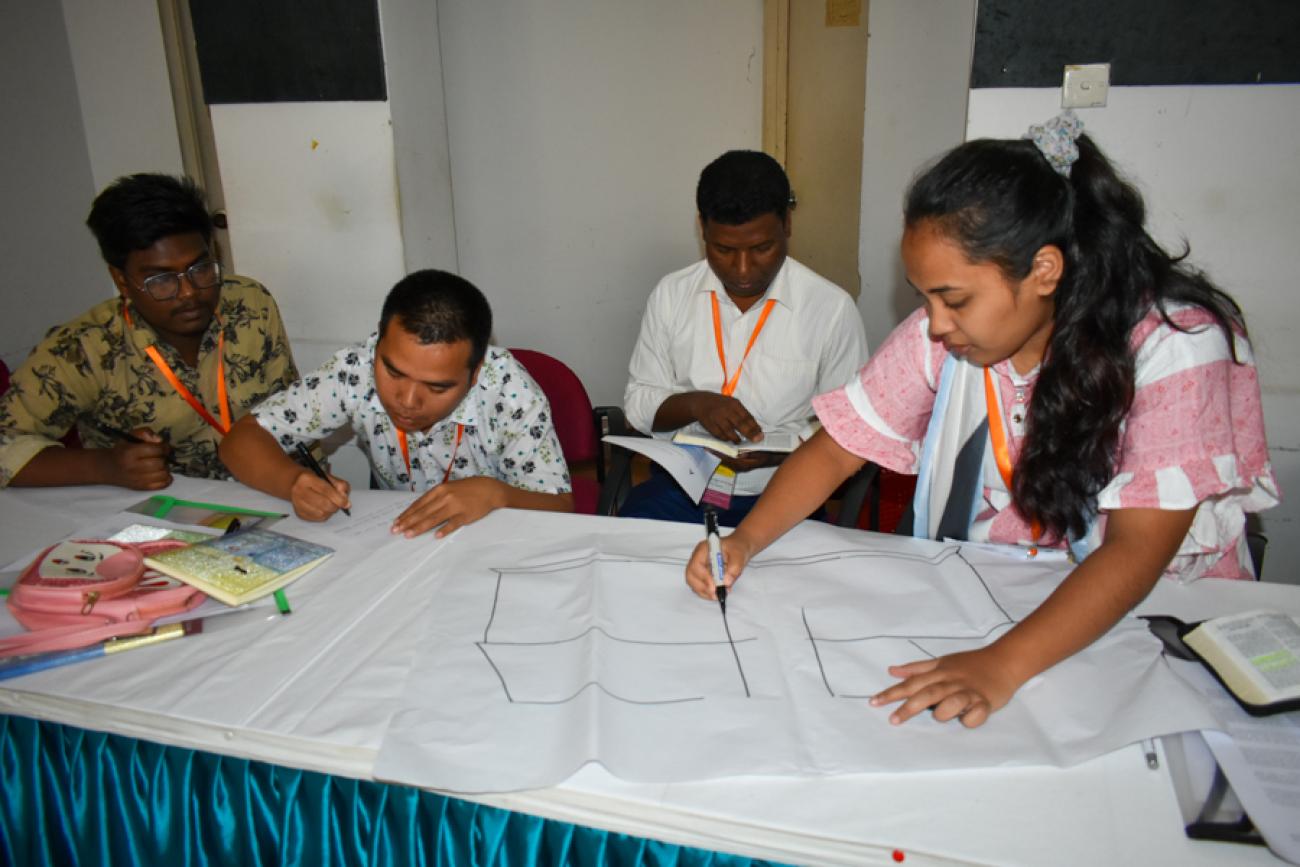CCA facilitates capacity-building of youth in Bangladesh for HIV vulnerabilities

Participants in a group discussion during the training session of ATCHAA
Dhaka, Bangladesh: The Christian Conference of Asia (CCA) and the National Council of Churches in Bangladesh (NCCB) jointly organised a national capacity-building training programme for twenty young people from across Bangladesh. The training was held on 8–9 March 2023 at the HOPE Foundation Centre in Savar, Dhaka, Bangladesh.
Rev. David Doss, General Secretary of NCCB greeted participants from the NCCB member churches and emphasised the need for the youth to understand the ecumenical initiatives aimed at combating HIV in Bangladesh, and to take up more active roles in the initiatives of NCCB.
Dr Probir Khyang, Moderator of NCCB’s medical board, and Dr Marvin Anik Choudhary, member of NCCB’s medical board, also addressed the participants and encouraged them to be agents of change in church and society.
Dr Choudhary, who also serves at the District Hospital in Chaudanga, analysed the HIV situation in Bangladesh. Although the epidemic may have a low level of incidence in the country, there was an increase in new infections and deaths each year, he said. High-risk behaviours among key affected populations, such as men having sex with men (MSM) and male sex workers who remain hidden from society, was also on the rise.
One of the sessions included ‘HIV-101,’ wherein the participants were encouraged to discuss the basic facts about HIV transmission, treatment, care and support, as well as to engage with each other through the collaborative approach. Through this interactive format, the latest updates on HIV were shared with the participants.
Dr Ronald Lalthanmawia, programme coordinator of CCA, highlighted the need for the voices of the youth in advocating for issues in Asia, particularly on HIV and AIDS. He shared the vulnerabilities of youth to HIV, especially in the Asian context, and how HIV incidence was increasing in many Asian countries, including Bangladesh. He emphasised the need for a comprehensive approach to HIV including the addressing of sexual and reproductive health to ensure that the youth are informed and take right decisions in protecting themselves from exposure to the HIV infection.
The biblical refection based on Mark 2:1–12 was discussed in groups to understand the healing process of the paralyzed man and the role of his friends in being instruments of the healing process. The participants were encouraged to reflect in the current context and understand the various roles and responsibilities of the church and youth for the vulnerable and marginalized communities amongst us.
The SAVE methodology (Safer Practices, Access to Treatment, Voluntary Counselling and Testing, and Empowerment) for awareness building was introduced through a group activity. The tool, which was developed by the International Network of Religious Leaders Living with or Personally Affected by HIV and AIDS (INERELA+), offers a comprehensive approach to address HIV through religion without stigma and discrimination.
The session on ‘Sexual and Reproductive Health and Rights’ focused on the need for formal education on sex and reproductive health, especially in the context of HIV, given that most new infections take place through sexual transmission. The Sexual and Reproductive Health Rights standards of the World Health Organisation (WHO) and the United Nations (UN) were shared with the participants.
The participants were encouraged to identify the strengths of the churches, church leaders, and themselves, to be caring and compassionate to people living with HIV. The participants acknowledged the role of youth to share right information to their peers and friend circles.
The session on ‘Addressing Stigma and Discrimination Associated with HIV’ enabled the participants to identify the root causes of stigma such as a lack of information, myths and misconceptions, structural barriers, and societal influence. The participants made action plans to address the causes of stigma and discrimination.
The gain in knowledge and changes in attitudes was measured through pre- and post-training tests which show remarkable gain in knowledge and a willingness to advocate for HIV in their own settings.
The two-day national capacity building training programme closed with an affirmation to advocate for HIV prevention, care, and support for people living and affected by HIV in their settings.
The national training programme was organised under the CCA’s special project, Action Together to Combat HIV and AIDS in Asia (ATCHAA), for capacity-building in HIV advocacy through youth engagement at the national level.
More photos can be found here.










